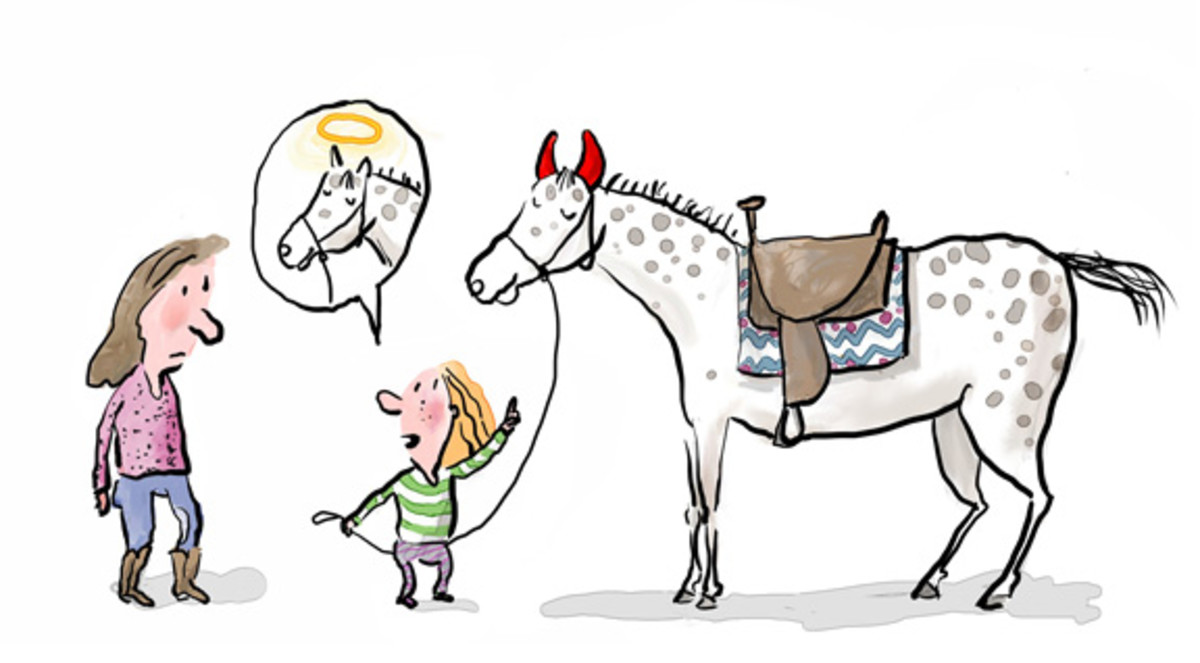
Do you ever make excuses for your horse’s misbehavior? We asked this question of Horse & Rider readers and bagged some interesting replies.
Awful Alibis
“But he’s a stud,” was one excuse for a stallion with poor manners.
And, “She’s too much of a lady to get her feet wet,” for a mare who balked at water crossings.
And, “It’s raining, and everyone‘s grumpy on a rainy day,” for an ill-tempered gelding.
[Problem behavior in your horse? Here are solutions.]
These kinds of excuses are everywhere, really. In his book Training on the Trail, clinician Clinton Anderson shares a few of the excuses he’s heard from his students.
Such as, “I can’t ride with that girl because my horse doesn’t like her horse.”
And, “I couldn’t go on that trail ride because my horse won’t cross ditches.”
And, “I can’t leave my horse tied because he gets lonely.”
Clinton says we use these ridiculous alibis because our horses teach us to do so.
He’s Training You
“Horses are phenomenal ‘people trainers,'” he says. As a result, we wind up trying to explain away the things they’ve trained us to let them do—or refuse to do.
[Out-of-control trail horse? Clinton has the fix.]
The urge to cover over these little weak spots in our horse’s training is strong because the alternative means work. When we admit our horse’s failings and take responsibility for them, we must then set about fixing them.
And we should, because consistently training for good behavior sends an important signal to a horse.
As Clinton explains, “Your horse is constantly reading you in an effort to determine, ‘Is she serious, or not?’ He’ll test you in small ways—push into your space, wait a heartbeat before responding to your request, attempt to ‘get an inch’ here and there.”
Then your horse observes how you respond. If you gloss over these small cheats, he’ll eventually pull a much larger one.
Why It Matters
“At that point,” the trainer adds, “you may feel he’s acting out of the blue. But, in reality, he’s been telling you for some time, via those little cheats, that he’s losing respect for you.
“But you haven’t been ‘listening’–or correcting him.”
So, for your benefit and his—no excuses!






